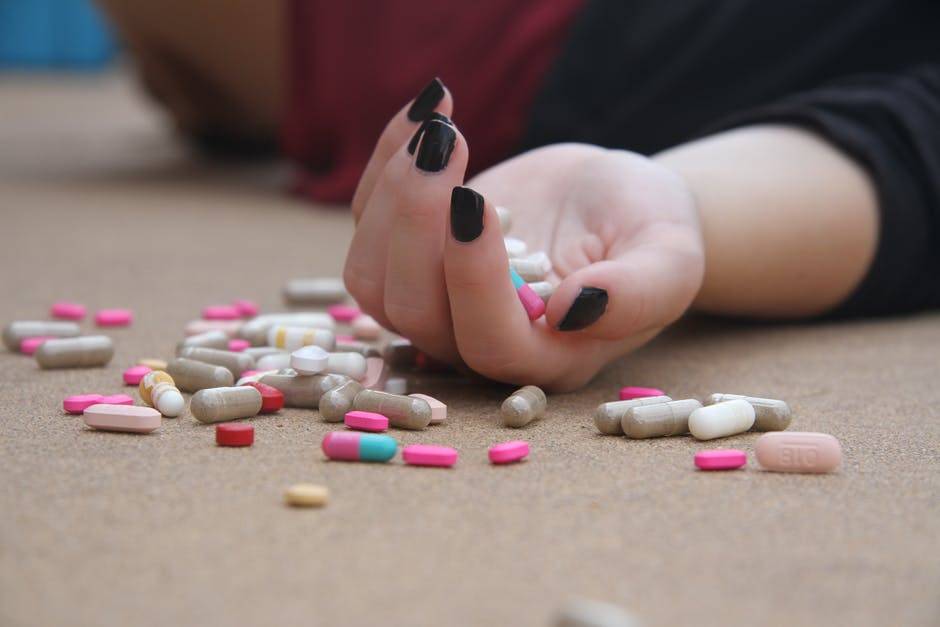How to Sober Up From Drugs
If you are addicted to illegal or prescription substances, you must know how to sober up from drugs.
That is the only way to get your life back on track and avoid severe or even fatal problems.
Even if you are not addicted, you may need help getter sober.
Why? Non-addicted drug abuse can also have a serious, negative effect on your life.
Fortunately, there are plenty of things you can do to sober up from drugs.
Professionals ranging from your personal doctor to addiction specialists have the knowledge needed to help.
With their guidance, you can regain your sobriety no matter how badly addiction affects you.

Drug Use and Drug Problems
Tens of millions of Americans use potentially addictive prescription medications. Most of these people follow their prescriptions and avoid problems. However, more than 16 million Americans misuse their medications. You can misuse a medication by taking it too often or in excessive amounts. You also take part in prescription drug misuse if you do things such as:
- Use someone else’s medication
- Crush you medication or do other things to speed up its effects
You are at risk for serious problems if you take any amount of an addictive street drug. Marijuana is the most common of these substances, even though this drug is now often legal to use. Other widely used street drugs include cocaine, methamphetamine and heroin.
If you are addicted to a prescription drug or street drug, you have a substance use disorder, or SUD. There are subtypes of SUD for each major drug category. For example, people addicted to amphetamines, methamphetamine or cocaine have a stimulant use disorder.
You can also be diagnosed with an SUD if you are not addicted. How is this possible? Even non-addicted drug abuse can seriously interfere with your ability to function. For this reason, such life-altering abuse is included in the substance use disorder definition
Immediate Placement in Drug Rehab – Get Help Now
877-651-3366
Can You Tell If You Need Help
Is it possible to tell when you need to start thinking about how to sober up from drugs? Very often, the answer to this question is yes. You should certainly think about your drug use if you misuse an addictive prescription medication. You should also be concerned if you are involved in the use of addictive street drugs.
When doctors diagnose an SUD, they look for signs of addiction such as:
- Loss of control over how often you use drugs, or how much you take
- Reduced sensitivity to the effects of any given amount of drugs
- Withdrawal symptoms that start if you cut back on drugs or stop taking them
- A lifestyle built around drug use or related activities
- Not being able to quit taking drugs after multiple attempts to break free
Signs of serious drug abuse include:
- Going through social or relationship problems as a result of your drug use
- Using drugs multiple times while doing something dangerous like driving
- Taking enough drugs to be unable to keep up with your major obligations
Learn More About Drug Rehab at Best Rehabs In Arizona — Call Today
866-263-1847
How to Sober Up From Drugs: First Steps
If you are wondering how to sober up from drugs, a common first step is talking to your personal physician. Today, many of these primary doctors have been trained to give drug screenings. Screenings serve several main purposes, including:
- Assessing your level and pattern of drug use
- Helping to determine whether you have an SUD
- Determining how bad your symptoms are if an SUD is present
- Helping your doctor guide you to the right resources for treatment
If you do not already have an SUD, you doctor may give you a brief intervention. That is the term for a short educational session about the dangers of your drug misuse. This session is designed to help you change and avoid developing diagnosable problems.
24-Hour Drug Rehab Hotline – Get Help Now
877-651-3366
How to Sober Up From Drugs: Drug Detox
If you have an SUD, you may need to enroll in drug detox, or detoxification, in order to get sober. Why? Detox provides a secure environment for people affected by addiction to stop using drugs. It also provides the medical expertise needed to safely make it through drug withdrawal.
What happens during detox? That depends on the drug or medication you are addicted to. There are specific detoxification options for substances such as:
- A stimulant such as methamphetamine or cocaine
- An opioid medication or street drug
- An addictive tranquilizer or sedative
Everyone enrolled in a detox program receives care designed to keep them as healthy as possible. Some people also receive medication while going through the detox process.

How to Sober Up From Drugs: Active Treatment
Completion of detox will leave you drug-free. However, this initial sobriety is not enough. To have a realistic chance at lasting sobriety, you must continue on to active drug rehab. Rehab helps you stay sober while you are still enrolled in treatment. It also teaches you techniques to remain sober once treatment comes to an end. Medication may be used as part of your rehab plan. Even if you do not receive medication, you will get crucial help from therapy or counseling.
What kinds of therapy will help you learn how to get sober from drugs and stay sober? Many options are available, including:
- Cognitive Behavioral Therapy
- Family Behavior Therapy
- Community Reinforcement
- Contingency Management
- 12-Step Facilitation
Your treatment team will match your therapy to your particular form of SUD.
Joining a Mutual Self-Help Group
It is common to join a mutual self-help group while still enrolled in rehab. In fact, the purpose of 12-step facilitation is to prepare you to join this kind of group. Self-help groups are beneficial because they allow you to establish peer relationships with others in recovery. These relationships provide extensive support for your long-term commitment to sobriety.
How To Sober Up From Drugs: Continuing Care or Aftercare
In detox and active treatment, you learn how to sober up from drugs. But this is not the end of your battle. You must also take appropriate steps to remain sober. A mutual self-help group will be a big plus. However, experts also recommend some form of continuing care or aftercare. This is the name for a follow-up program that gives you continued access to professional treatment. Continuing care will help you cope with the ups and downs of everyday life without returning to drug use.
Free Insurance Verification for Drug Rehab – Call Us Today
877-651-3366
Learn More About How To Sober Up From Drugs
Learning how to get sober from drugs can be a major turning point in your life. In contrast, if you do not learn how to do this, you may find yourself trapped in addiction’s powerful grip. If you suspect that your drug use has gotten out of hand, today is the day to get help. Together, your primary doctor and addiction specialists will help you recover from even severe drug-related problems.
Have questions about how to sober up from drugs? Just turn to the professionals at Best Rehabs In Arizona. Our experienced staff will help you sort out exactly what you need to do to get started. And if you need to enroll in a drug treatment program, Best Rehabs In Arizona is standing by. No matter what kind of substance you are addicted to, you will find what you need in our full range of treatment services.
Substance Abuse and Mental Health Services Administration: Key Substance Use and Mental Health Indicators in the United States – Results From the 2019 National Survey on Drug Use and Health; Pages 15 and 20
https://www.campusdrugprevention.gov/sites/default/files/2019%20NSDUH.pdf
U.S. National Library of Medicine – MedlinePlus: Prescription Drug Misuse
https://medlineplus.gov/prescriptiondrugmisuse.html
American Psychiatric Association: What Is a Substance Use Disorder?
https://www.psychiatry.org/patients-families/addiction/what-is-addiction
Substance Abuse and Mental Health Services Administration: A Guide to Substance Abuse Services for Primary Care Clinicians – Chapter 2: Screening for Substance Use Disorders
https://www.ncbi.nlm.nih.gov/books/NBK64820/
Substance Abuse and Mental Health Services Administration: A Guide to Substance Abuse Services for Primary Care Clinicians – Chapter 3: Brief Intervention
https://www.ncbi.nlm.nih.gov/books/NBK64821/
Substance Abuse and Mental Health Services Administration: Detoxification and Substance Abuse Treatment – Physical Detoxification Services for Withdrawal From Specific Substances
https://www.ncbi.nlm.nih.gov/books/NBK64116/#A85631
National Institute on Drug Abuse: Principles of Drug Addiction Treatment – A Research-Based Guide (Third Edition); Pages 39 -65
https://www.drugabuse.gov/sites/default/files/podat_1.pdf
https://www.ncbi.nlm.nih.gov/books/NBK64116/#A85631
Journal of Substance Abuse Treatment: Continuing Care – What We’ve Learned and Where We’re Going



















